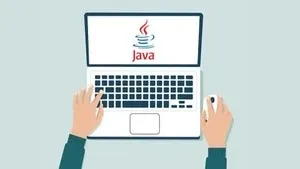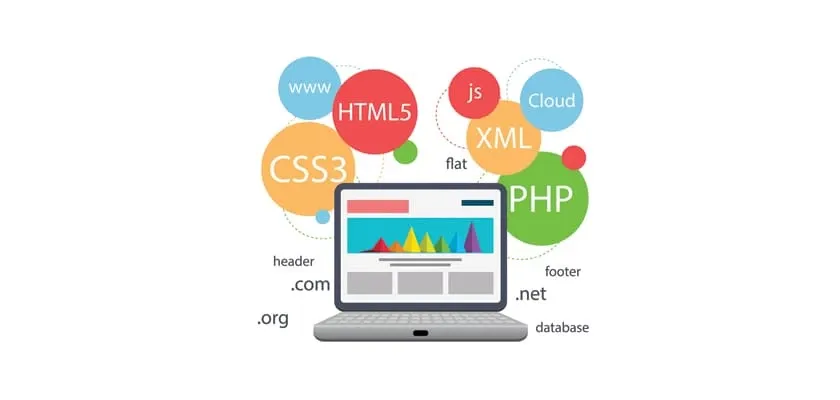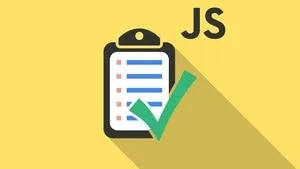This plan includes
- Limited free courses access
- Play & Pause Course Videos
- Video Recorded Lectures
- Learn on Mobile/PC/Tablet
- Quizzes and Real Projects
- Lifetime Course Certificate
- Email & Chat Support
What you'll learn?
- You are looking forward to developing your first Java Web Application
- You have some experience with Java Web Applications but did not completely understand the basics
- You want to learn basics of JSP and Servlets
Course Overview
Developing your first Java Web Application using JSP and Servlets is fun.
In this course, you will learn the basics developing a Basic To-do Management Application using Java Servlets and JSP with Login and Logout functionalities.
You will build a Dynamic Website using the Core technologies of Java Web Programming. You will understand the basic concepts of Java Web Application Development - HTTP protocol, Request-Response cycle, Java Servlets, JSPs.
You will build the website step by step - in more than 25 steps. This course would be a perfect first step as an introduction to Java Web Application Development.
We will be using Tomcat Web Server and Eclipse IDE. We will help you set these up.
You will learn

- Basic Web Application Architecture - Model 1 and Model 2 MVC
- Basics of Java EE - Servlets, JSP, Script lets, JSTL, web dot xml and EL
- Basic Flow of a Web Application, Forms, Request and Response
- Basics of creating a Web Page using CSS and HTML
- Basics of using Maven, Tomcat and Eclipse
- Difference between Session and Request Scopes
Steps

- Step 01 : Up and running with a Web Application in Tomcat
- Step 02 : First JSP
- Step 03 : Adding a Get Parameter name
- Step 04 : Adding another Get Parameter Password
- Step 05 : Let's add a form
- Step 06 : New Form and do Post
- Step 07 : Adding Password and Validation of User Id / Password combination
- Step 08 : Adding a Foodservices and To-dos to welcome page
- Step 09 : Bit of Refactoring - Packages
- Step 10 : Redirect from One Servlet to another - New TodoServlet.
- Step 11 : First JSTL Tag : Using a Loop around to-dos
- Step 12 : Difference between Session and Request Scopes
- Step 13 : Add a New To-do
- Step 14 : Delete To-do with equals and hash code methods
- Step 15 : Adding web jars for jQuery and bootstrap
- Step 16 : Missing Step :) We want you to take a break. Nothing in here..
- Step 17 : Updating Bootstrap to 3.3.6
- Step 18 : More Refactoring
- Step 19 : Adding a Filter for More Security.
- Step 20 : Logout
- Step 21 : Theory : Understand Maven and Tomcat
- Step 22 : Theory : Servlet Lifecycle
- Step 23 : Theory : Model 1 and Model 2 MVC Architectures
- Step 24 : Moving Add Functionality to a New Page.
- Step 25 : Add Category Field
- Step 26 : Format the JSPs better.
- Step 27 : JSP Fragments
We do NOT interact with a Database in this Beginner’s Course.
Pre-requisites
- You are expected to be familiar with Java.
- You are NOT expected to have any experience with Eclipse,Maven or Tomcat.
- We will help you install Eclipse and get up and running with Maven and Tomcat.
Target Audience
- Build a Basic Todo Management Application piece by piece in 25 Steps.
- Understand Basic Web Application Architecture
- Understand and use Basics of Java EE - Servlets, JSP, Scriptlets, JSTL, web.xml and EL
- Understand Servlet LifeCycle
- Use HttpRequest - GET/POST, Request Parameters
- Understand HTTP Response - Response Status - 404,200,500 etc
- Understand HTML Forms - Method, Action & Form Data
- Understand Basics of using Maven, Tomcat and Eclipse
- Understand Difference between Session and Request Scopes
- Use Maven for Basic Dependency Management
- Run Web Application in Tomcat
- Style web applications with Bootstrap (Basics)
- Use Filters to intercept Request
Curriculum 66 Lectures 03:36:32
Section 1 : Introduction to Your First Java Servlets and JSP Web Application in 25 Steps
Section 2 : Web Application Basics
- Lecture 1 :
- Step 01 : Setting up Your First Java Web Application
- Lecture 2 :
- Step 01 : Theory 1 - Maven and Magic
- Lecture 3 :
- Step 01 : Theory 2 - What is a Servlet?
- Lecture 4 :
- Step 01 : Theory 3 - Web Application Request Flow
- Lecture 5 :
- Step 01 : Theory 4 - Understand Your First Servlet - LoginServlet Fastest Approa
- Lecture 6 :
- Step 02 : Create LoginServlet From Scratch Again and Your First View
- Lecture 7 :
- Step 02 : Theory - Play Time - Let's Try Breaking Things
- Lecture 8 :
- Step 03 : Passing Request Parameters using Get Method
- Lecture 9 :
- Step 03 : Theory - Introduction and End to Scriptlets
- Lecture 10 :
- Step 04 : Disadvantages of Get Parameters
Section 3 : More Basics : Request Methods Get/Post and Servlets
- Lecture 1 :
- Step 05 : Your First Post Request
- Lecture 2 :
- Step 06 : Your First Servlet doPost Method
- Lecture 3 :
- Step 07 : Lets Add a Password Field
- Lecture 4 :
- Step 08 : Let's Add Todos to Welcome Page
- Lecture 5 :
- Step 09 : Take a Breather and Refactor
- Lecture 6 :
- Step 10 : Redirecting to Another Servlet
Section 4 : Adding More Java Web Application Features
- Lecture 1 :
- Step 11 : Your First JSTL Tag
- Lecture 2 :
- Step 12 : Session Scope vs Request Scope
- Lecture 3 :
- Step 13 : Add new Todo Functionality
- Lecture 4 :
- Step 14 : Add delete Todo Functionality
- Lecture 5 :
- Step 15: Import Bootstrap and JQuery with WebJars.
- Lecture 6 :
- Step 17 : Playing around with Bootstrap
- Lecture 7 :
- Step 18 : Let's Clean up and Refactor
- Lecture 8 :
- Step 19 : Adding a Filter
- Lecture 9 :
- Step 20 : Adding Logout Functionality
Section 5 : Let's Take in Some Theory
- Lecture 1 :
- Step 21 : Let's understand Maven and Tomcat
- Lecture 2 :
- Step 22 : Servlet Life Cycle
- Lecture 3 :
- Step 23 : Model 1 and Model 2 (MVC) Architectures
Section 6 : Let's get back to Building the Application Again
- Lecture 1 :
- Step 24 : Refactoring - Move Add Functionality to New Servlet
- Lecture 2 :
- Step 25 : Adding Category Field
- Lecture 3 :
- Step 26 : Using JSP Fragments for Header, Footer & Navigation
- Lecture 4 :
- Next Steps
Our learners work at
Frequently Asked Questions
How do i access the course after purchase?
It's simple. When you sign up, you'll immediately have unlimited viewing of thousands of expert courses, paths to guide your learning, tools to measure your skills and hands-on resources like exercise files. There’s no limit on what you can learn and you can cancel at any time.Are these video based online self-learning courses?
Yes. All of the courses comes with online video based lectures created by certified instructors. Instructors have crafted these courses with a blend of high quality interactive videos, lectures, quizzes & real world projects to give you an indepth knowledge about the topic.Can i play & pause the course as per my convenience?
Yes absolutely & thats one of the advantage of self-paced courses. You can anytime pause or resume the course & come back & forth from one lecture to another lecture, play the videos mulitple times & so on.How do i contact the instructor for any doubts or questions?
Most of these courses have general questions & answers already covered within the course lectures. However, if you need any further help from the instructor, you can use the inbuilt Chat with Instructor option to send a message to an instructor & they will reply you within 24 hours. You can ask as many questions as you want.Do i need a pc to access the course or can i do it on mobile & tablet as well?
Brilliant question? Isn't it? You can access the courses on any device like PC, Mobile, Tablet & even on a smart tv. For mobile & a tablet you can download the Learnfly android or an iOS app. If mobile app is not available in your country, you can access the course directly by visting our website, its fully mobile friendly.Do i get any certificate for the courses?
Yes. Once you complete any course on our platform along with provided assessments by the instructor, you will be eligble to get certificate of course completion.
For how long can i access my course on the platform?
You require an active subscription to access courses on our platform. If your subscription is active, you can access any course on our platform with no restrictions.Is there any free trial?
Currently, we do not offer any free trial.Can i cancel anytime?
Yes, you can cancel your subscription at any time. Your subscription will auto-renew until you cancel, but why would you want to?
Instructor

511741 Course Views
7 Courses



 Tech & IT
Tech & IT
 Business
Business
 Coding & Developer
Coding & Developer
 Finance & Accounting
Finance & Accounting
 Academics
Academics
 Office Applications
Office Applications
 Art & Design
Art & Design
 Marketing
Marketing
 Health & Wellness
Health & Wellness
 Sounds & Music
Sounds & Music
 Lifestyle
Lifestyle
 Photography
Photography























